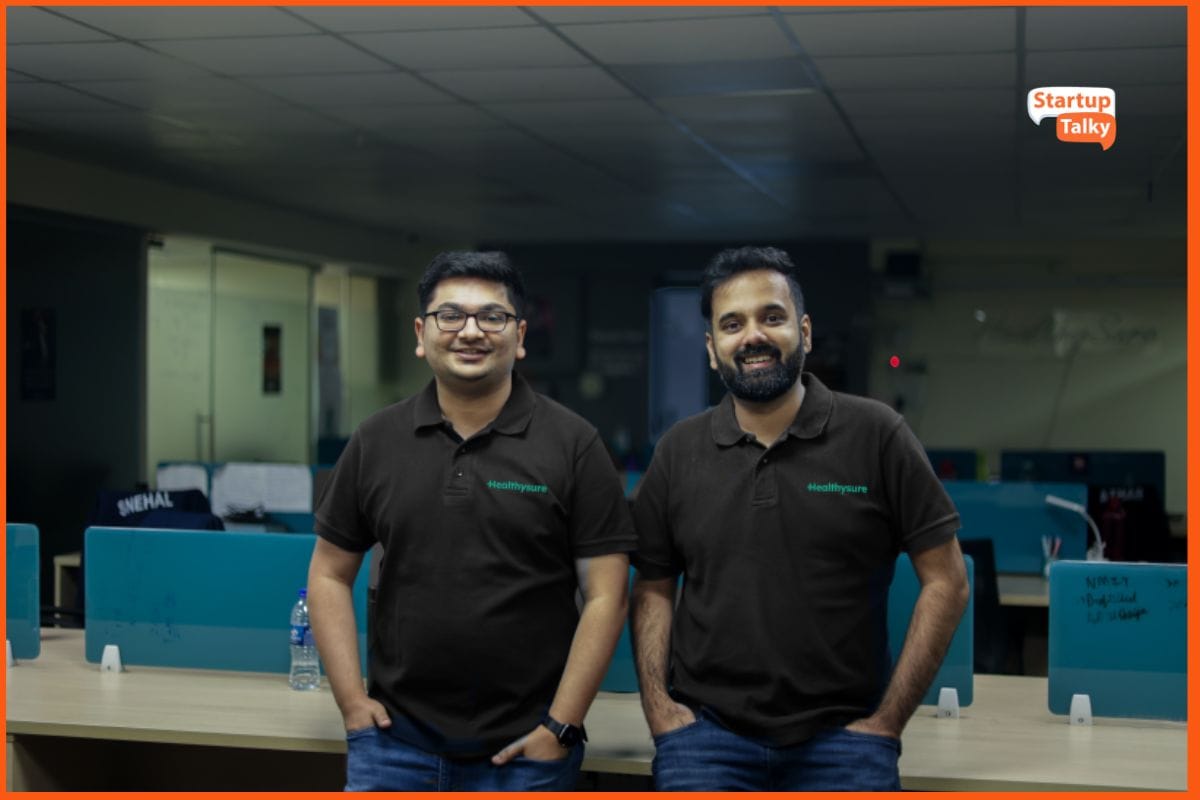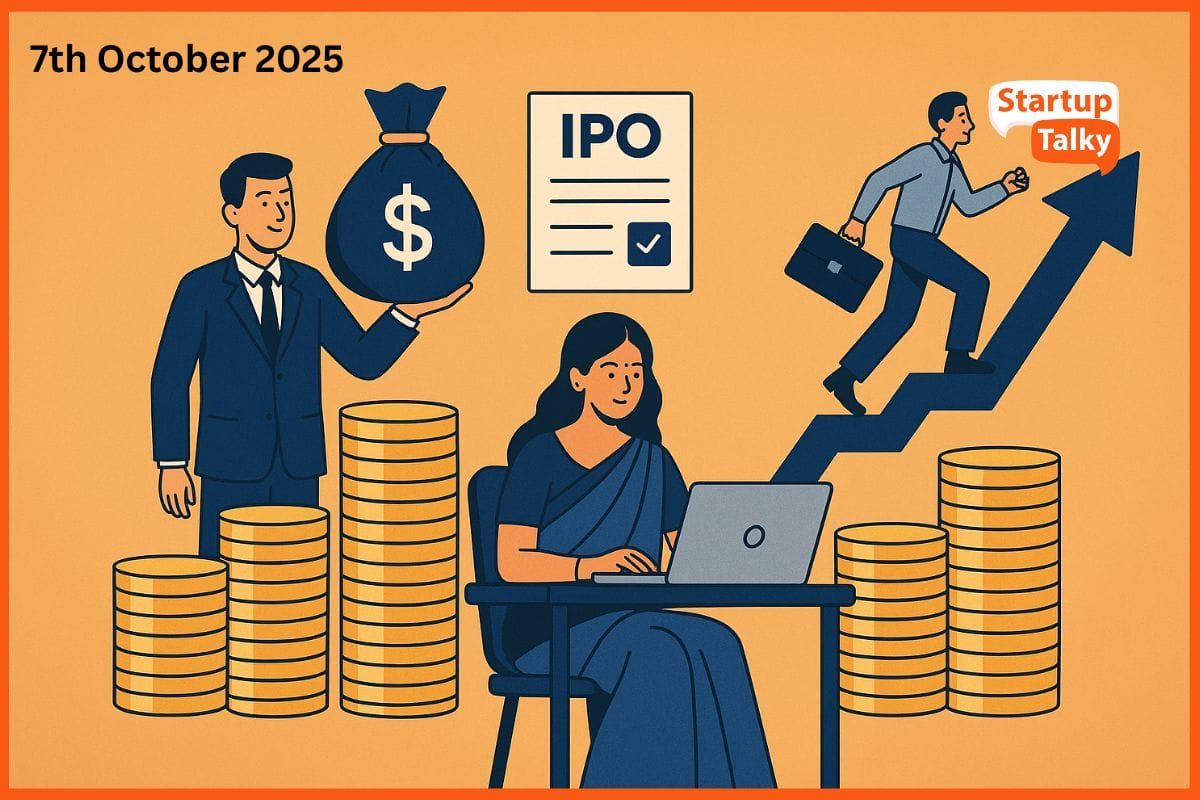Meolaa, an end-to-end technology-powered FMCG company, today announced that it has secured $6 million in Pre-Series A funding to advance its digital-first growth strategy. The round was led by General Catalyst (GC), alongside participation from Claypond Capital (family investment office of Dr. Ranjan Pai), Colossa Ventures, entrepreneur Kunal Shah, Turbostart Global, and other existing investors. This marks a significant step in Meolaa’s evolution into an end-to-end technology-powered Fast-Moving Consumer Goods (FMCG) business, harnessing AI and data science to generate actionable consumer market intelligence, accelerate execution, and increase the probability of success for every new brand and product.
The company’s strategy is further aligned with the evolving preferences of Gen Z consumers, who are driving demand for cleaner, more conscious, and innovative offerings that combine sustainability with novelty. Meolaa remains committed to addressing this demand by building a new generation of FMCG brands distinguished by agility, precision, and measurable outcomes.
Ishita Sawant, Founder and CEO, Meolaa, said “At Meolaa, we believe consumer brands must be built with precision — powered by data, insights, and culture. With General Catalyst’s support, we are accelerating our transition into a modern, AI-enabled FMCG house designed to disrupt the value chain end to end. HIRA, our flagship brand, is just the beginning — proof that products rooted in real consumer needs can scale fast, resonate deeply, and travel globally. By reimagining the assembly line of brand creation, we are solving for agility, speed, and scale — while reverse-engineering success to tilt the odds in our favour. This partnership gives us the conviction and resources to build India’s first FMCG powerhouse for the world.”
Meolaa is augmenting AI and advanced analytics across its business verticals, integrating consumer market intelligence, new product development, packaging and branding innovation, and supply chain and distribution optimization. This end-to-end technology-powered framework creates a unified workflow that accelerates decision-making, strengthens product design, and ensures that every stage of the brand lifecycle is informed by actionable insights.
“What excites us about Meolaa is Ishita’s vision to build an AI-native FMCG powerhouse, replacing traditional R&D with intelligent systems that compress brand development from years to months,” said Neeraj Arora, Managing Director at General Catalyst. “Her consumer-first approach and global brand insights, combined with her bias for action, position her uniquely to identify whitespace opportunities and execute rapidly. Under Ishita’s leadership, they’re reimagining how consumer brands are built and scaled for the modern economy.”
Large FMCG companies operate through long, sequential brand creation and product development cycles that can take upwards 18 to 24 months. The process involves extensive market research, R&D, packaging design, consumer testing, and nationwide rollout, often slowing the response to shifting consumer demands. Meolaa addresses this gap through a unified AI-powered brand creation framework that combines real-time consumer intelligence, structured innovation processes, and intelligent go-to-market orchestration. This integrated approach compresses timelines from years to months while effectively reverse engineering product–market fit.
The newly raised capital will be deployed across three key priorities:
- AI and Data Science Infrastructure: Serving as the central engine of Meolaa’s business model, the AI and data science infrastructure redefines the foundations of FMCG. It unifies predictive analytics, proprietary algorithms, and automation into a seamless intelligence-driven system that replaces traditional manual processes. This backbone powers the entire brand journey, positioning the company to set new benchmarks in how consumer brands are built and grown.
- Brand Expansion: The company plans to expand into adjacent personal care categories, guided by actionable insights to compress development cycles and increase success rates. Each new brand will target sizeable market opportunities with focused value propositions and curated product portfolios built for scale.
- Operational Agility and Scale: Strategically expanding into high-potential distribution networks by identifying the most relevant consumer cohorts and geographies, while leveraging AI-driven operational intelligence to optimize performance across core business functions. This enables the company to achieve greater agility, efficiency, and responsiveness to evolving consumer demand.
Meolaa’s insights-driven approach has already delivered strong results by identifying and capturing emerging opportunities in underserved categories such as the Indian fragrance market. Valued at $281 mn in FY2024 and projected to reach $ 873.3 mn by FY2032, India’s fragrance segment is witnessing the rise of a “mass-premium” segment, driven largely by the aspirations of Gen Z professionals, whose strong entry-level salaries are prompting them to invest in premium categories that boost confidence, including fragrances. This generation is turning to premium experiences not only for quality, authenticity, and sensorial richness, but also as tools for self-expression, social currency, and aspirational consumption. A BCG and Snapchat study corroborates the influence of GenZ on emerging consumer trends, with the generation accounting for 43% of the country’s total consumption.
Recognizing this market opportunity, Meolaa’s first and flagship brand, HIRA, serves as definitive proof of concept to the company’s approach, achieving INR 1 Cr in monthly recurring revenue within just three months of launch by capturing the underserved premium fragrance segment. Much like the disruption witnessed in categories such as sneakers and bags over recent years, HIRA has emerged as the force redefining the fragrance category, scaling at a pace the market had not imagined. Together with the upcoming digital-first brands, the extended portfolio is now projected to achieve significant near-term growth targets.
Meolaa is building a full-stack AI layer that functions as the intelligence backbone for brand teams, supporting the entire lifecycle from actionable intelligence generation and product development to execution and scale. The platform manages core functions such as brand creation, scenario analysis, and routine decision-making with greater speed and accuracy. While data infrastructure for forecasting and trend analysis already exists in the industry, Meolaa operationalizes this information, turning fragmented processes into a unified system with measurable outcomes. This marks the emergence of a new-age house of brands in FMCG that prioritizes building from scratch and owning intellectual property from day one, fundamentally differentiating from acquisition-driven growth strategies.
Additional Commentary
“We are pleased to expand our investment in Meolaa as it steps into a powerful new chapter of championing sustainable brands for the next generation of consumers. From day one, Meolaa’s AI-driven insights platform has tapped into emerging cultural and consumer trends, offering personalized experiences and building meaningful engagement, especially with millennials and Gen Z. These insights inspired the creation of HIRA, a clean, enduring fragrance brand meeting a real need in the largely untapped sustainable fragrance category. At Colossa, we believe the future of consumer products in India will be shaped by sustainability and innovation! And women founders like Ishita are well positioned to lead that future,” said, Ashu Suyash, Founder- Colossa Ventures
“From backing Meolaa at its seed stage to witnessing its rapid evolution, it’s been remarkable to see Ishita and her team challenge the fundamentals of an industry as entrenched as FMCG,” said Dr. Ranjan Pai. “Meolaa combines deep consumer understanding with technology to accelerate brand creation and scale – bringing a level of agility and precision rarely seen in this space. Under her leadership, Meolaa is building the blueprint for how the next generation of consumer companies will operate.”


